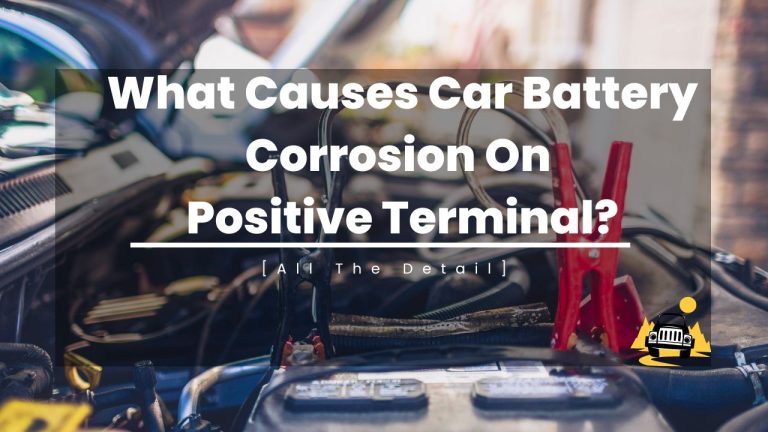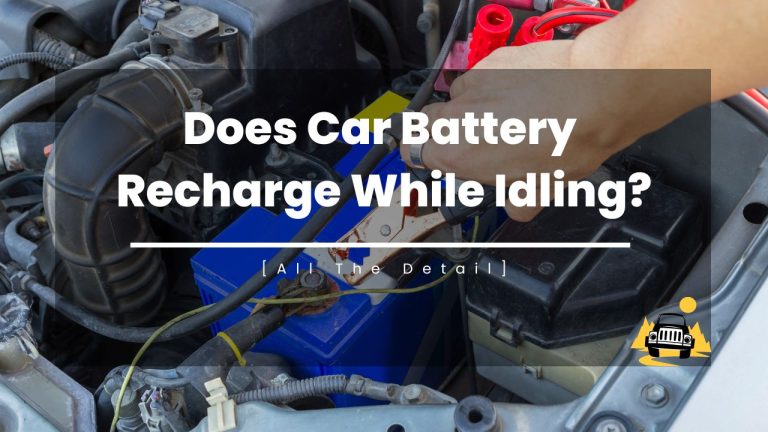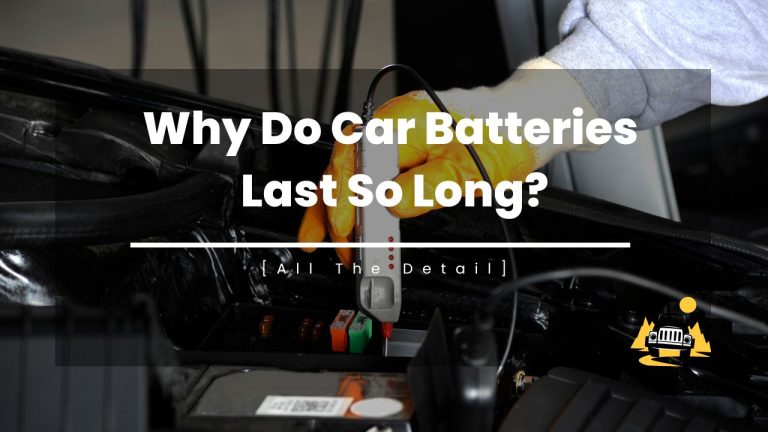Why Is Car Battery Corroded?
Car battery corrosion is very frustrating; it can disturb your whole car’s performance. If your car is difficult to start and your voltage drops while driving, you may have corroded batteries. A careful observation of flaky white and blue substances around the battery and the terminal can reveal battery corrosion.
The chemical makeup of the battery makes it possible for a battery terminal to corrode over time. When the automobile is small, it might not be detrimental, but a lot of it might lead to problems like a voltage drop while driving.
So a question arises: why is car battery corroded? Read this article carefully if you want to find the answer.

Why Is Car Battery Corroded?
Hydrogen gas is used in the corrosion of vehicle batteries. So whence does this hydrogen gas originate? The sulfuric acid in the battery is what produces hydrogen gas. The majority of people often picture dark, metallic rust when they think about corrosion.
Corrosion on batteries and their terminals is a little different. Mostly blue and white flaky substance around the terminals and battery. These green, blue, or white flaky particles that you may see on the battery terminal are created by a reaction and crystallization with other gases in the air.
It may take years for vehicle battery corrosion to build up, or it may happen rapidly, but either way, it is important to understand what triggers it.
There are a lot of reasons, what cause car battery corrosion.
Hydrogen Gas
Typically, when a battery’s sulfuric acid leaks and produces hydrogen gas, it causes corrosion in the automobile battery. After then, the hydrogen gas mixes and crystalizes with other airborne gases. It frequently displays a fluctuating battery gauge.
Type of Terminal
The type of terminal that is utilized might contribute to automobile battery corrosion. Because of the electric current passing over the copper clamps, copper will likely react with sulfuric vapors to generate green or blue corrosion crystals.
Sulfuric gas will also react with aluminum connections. It can create white crystals by allowing an electric current to run through its clamps. The interaction with the sulfuric gases indicates that the battery leaks someplace.
Electrolytes Leakage
Corrosion of a vehicle battery can also be brought on by an electrolyte leak, particularly if the battery is the sort that requires constant electrolyte topping off with water as opposed to the sealed version.
The leakage of the electrolytes, which can result in corrosion, can be caused by damage to the battery or a lack of proper maintenance. Electrolytes that flow over the terminals while recharging a battery can also cause corrosion.
Old Battery
Regardless of how carefully you maintain the automobile, corrosion in the battery might be caused by age. Corrosion may be unavoidable if your battery has been in use for longer than the typical five-year lifespan of batteries.
Because of terminal corrosion, some batteries may not even reach the end of their five-year lifespan before you start to notice a decline in their performance. This syndrome is brought on by several things that affect your battery.
The battery is frequently overcharged
Overcharging a battery frequently can cause corrosion at the positive terminal. The majority of the time, connecting a car battery to a battery charger results in an overcharge.
Corrosion can result from overcharging because the temperature rises and causes the electrolyte’s volume to expand. The pressure brought on by the expansion allows the electrolyte to spill out and induce corrosion at the terminals.
Bad Alternator
When your battery is in use, alternators make sure it is charged. However, if the alternator is damaged, it won’t work well and can stop providing a powerful charge to the battery.
As a result, the battery won’t receive a complete recharge. White crystals start to accumulate on a battery after only a partial recharge, suggesting corrosion and signaling the necessity for a full recharge.
Battery Connectors
Depending on the kind of battery you select to use in your car, some battery connections might lead to corrosion because they can react with the sulfuric acid in the battery. For instance, when sulfuric acid and copper and aluminum connections are combined, corrosion of the automobile battery results.
What amount of voltage should a car battery lose overnight?
How much battery voltage is lost overnight depends on the battery’s condition and storage capacity. When the car’s engine is running, the battery voltage should be over 13.6 volts, and when the engine is off, it should be at or below 12.6 volts. The battery voltage may start at 12.1 V in the morning and drop by that much overnight.
Does battery corrosion indicate that the battery needs to be replaced?
If you notice corrosion forming around your battery terminals on other vehicles with standard flooded lead-acid batteries, it doesn’t necessarily mean your battery needs to be replaced. However, it does indicate that there is likely significant resistance accumulating around that connection, which may make it more difficult for your battery to accept and deliver voltage. and may have an impact on your car’s overall performance.
Can rust prevent a car from starting?
Under the hood of your automobile, battery corrosion is a relatively frequent yet damaging phenomenon. You might not be able to start your automobile if there is too much rust buildup since it will make it difficult for your battery to supply electricity to the rest of your car.
What factor causes corrosion to happen quickly?
Most metals’ exposure to weather conditions is the primary cause of corrosion. As a result, if you leave metal things outside in the open, they will rust. They will swiftly oxidize as a result of being exposed to external factors including water, wind, and dampness.
What might rust accelerate?
The oxygen required for rusting can also be provided by carbon dioxide in the air. Carbonic acid is produced when carbon dioxide and water interact. This electrolyte has the potential to accelerate rusting and encourage corrosion.
Conclusion
As we previously stated, the most crucial part of your automobile or vehicle is the battery. Small battery flaws might cause significant performance issues. Consequently, you must take careful care of it. The question “why is car battery corroded?” has several potential responses, like hydrogen gas, electrolyte leakage, battery age, a bad alternator, and many more.
But hydrogen gas is the most common one. You have to take good care of your battery to prevent corrosion. As it can affect your overall vehicle performance.
We hope this article about battery corrosion has helped you a lot.





